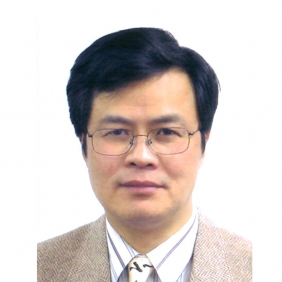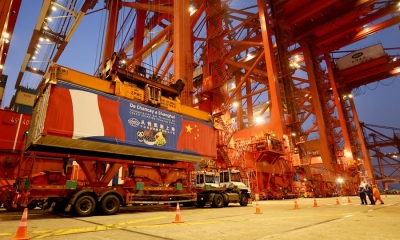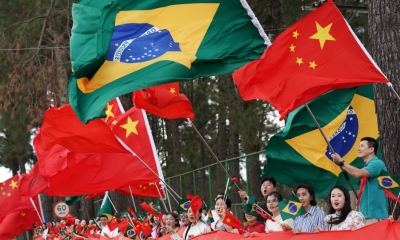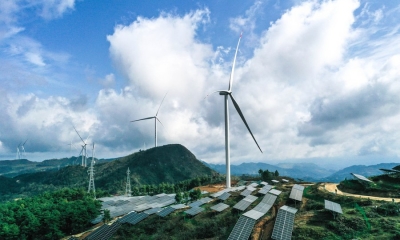Clash of Civilizations or Mutual Learning Among Civilizations
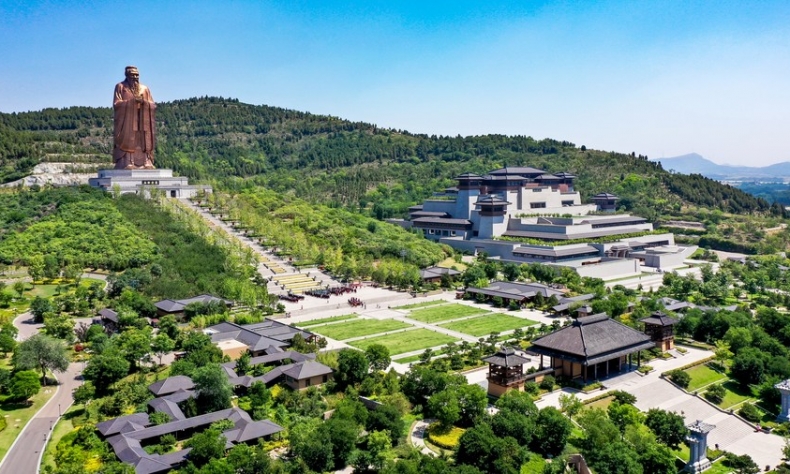
Different civilizations can only complement each other and enhance their mutual strengths through communication, thereby further advancing the progress of human civilization.
September 28 of 2024 marks the 2575th birthday of Confucius. As one of the greatest thinkers in human history, he is well-known for many outstanding ideas, one of which is to promote mutual learning among civilizations. Today, mutual learning has become a bedrock idea in the Global Civilization Initiative proposed by China.
The diversity of human civilization is the basic characteristic of the world and the source of human progress. The differences in ideology, social system and development models should not become obstacles to the exchange of human civilizations, let alone reasons for confrontation. In the face of momentous changes unseen in a century, the need to further promote mutual learning among civilizations has become increasingly prominent.
First of all, mutual learning among civilizations helps promote the building of a community with a shared future for mankind. The ultimate goal of a community with a shared future for mankind is to establish partnerships based on equality and mutual understanding, create a just and equitable security framework built on shared development, seek inclusive growth, promote harmonious yet diverse cultural exchanges, and construct an ecological system that respects nature and supports green development.
Thus, it is evident that the concept of a community with a shared future for mankind aims at the well-being of all humanity. This concept encompasses both realistic considerations and a future-oriented vision. It not only paints a picture of a beautiful vision but also provides practical paths and action plans. Indeed, this goal cannot be achieved overnight, but humanity should not abandon the courage and bravery to pursue it.
Second, mutual learning among civilizations helps advance globalization. Globalization is an inevitable path for human society, a requirement of the development of social productivity, and an inevitable outcome of technology progress. It also represents a trend towards a more unified world. In this trend, horizontal international division of labor is becoming more important, the allocation of resources is increasingly extending beyond the scope of nation-states, and interdependence among different countries is growing ever higher. Therefore, globalization is transforming the world into a community of shared destiny, where the prosperity or adversity of one is linked to that of all.
However, in this process, nation-states have not disappeared and differences in civilizations, ideologies, social systems, and development models among them continue to exist. Moreover, alongside the advancement of globalization, there is often a powerful and persistent backlash of anti-globalization movements that frequently stir up troubles. Therefore, to ensure the continued progress of globalization, it is essential to adhere to the principles of equality, mutual benefit, mutual learning, dialogue, and inclusiveness so that globalization will keep on moving forward by strengthening civilizational mutual learning and bridging the differences in national interests.
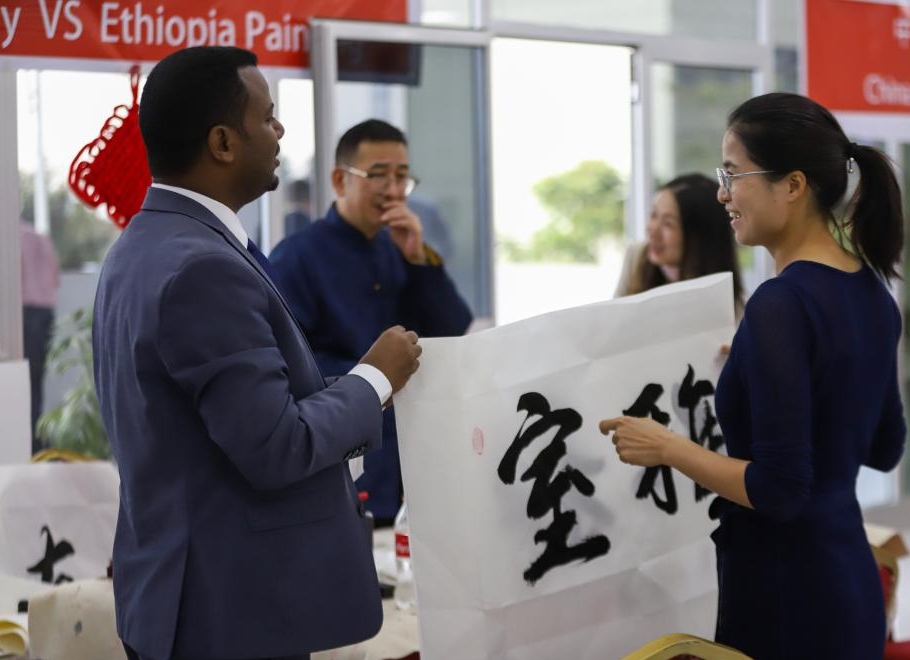
Third, mutual learning among civilizations helps maintain world peace. As globalization keeps on moving forward, the world has become a global village, with the level of interdependence between/among countries continuously increasing. Although peace and development are the major themes of the day, there are still many factors that hinder peace and development in the world, and the “peace deficit” persists. Therefore, maintaining world peace and promoting global development remain humanity’s dreams and enduring aspirations.
Samuel Huntington’s “Clash of Civilizations” theory is undoubtedly flawed, but throughout human history, conflicts between civilizations have indeed led to wars or other kinds of deadly confrontations. Therefore, bridging the gaps and misunderstandings between different civilizations, approaching other countries and peoples with an attitude of equality and inclusiveness, abandoning notions of civilizational superiority, arrogance, and prejudice, deepening mutual understanding and tolerance, and learning from each other while making joint progress, are always essential methods for maintaining world peace and development. The course of history repeatedly proves that without mutual learning among civilizations, distances and barriers will arise between individuals, nations, and countries, thereby increasing the difficulty of peaceful coexistence and heightening the risk of conflicts and wars.
Fourth, mutual learning among civilizations helps uphold and promote the shared values of all humanity. Peace, development, fairness, justice, democracy, and freedom are the shared values of all humanity. These shared values are not only the foundation of the community with a shared future for mankind but also the noble goals of the United Nations. They are the fundamental principles governing new international relations. They provide a value foundation for building a community with a shared future for mankind and offer intellectual guidance for human advancement. They reflect the inevitable progress of human history from national to global dimensions and represent the greatest common denominator in the pursuit of progress by different civilizations.
The shared values of all humanity seek commonalities among different individuals, nations, and countries. Moreover, these shared values acknowledge the diversity and plurality of civilizations, and strive to narrow the differences in ideology, political or social systems, and levels of development. However, people living in different civilizations often have very different understandings of these shared values. Therefore, to promote these shared values, it is essential to advocate for exchanges and mutual learning among different civilizations.
Fifth, mutual learning among civilizations helps highlight the diversity and distinctive characteristics of human civilization. Diversity is an essential attribute of human civilization. With almost 200 countries and more than 2,500 ethnic groups in the world, people living in different regions have created a wide variety of civilizations due to differences in geography, climate, history, lifestyle, cultural traditions, and religious beliefs. Thus, throughout history, the diversity of civilizations has been a fundamental feature of human civilization and a source of human progress. In other words, the diversity of civilizations creates opportunities for mutual learning and progress, and highlights the value of civilization itself.
Undoubtedly, in the foreseeable future, even as the world increasingly becomes a global village, the diversity of human civilization is unlikely to disappear. Therefore, in order to preserve this diversity and to highlight the distinctive characteristics of different civilizations, countries around the world must uphold the principles of equality, mutual respect, mutual learning, dialogue, and inclusiveness. Through communication and mutual learning, they should respect each other, draw upon each other’s strengths and merits, embrace a variety of perspectives, and coexist in harmony.

Sixth, mutual learning among civilizations helps promote economic growth. International relations are built on mutual understanding among people, and this understanding relies on mutual exchanges of hearts and minds. This can be achieved by strengthening international cultural exchanges in different ways such as trade in cultural and creative products. Numerous business opportunities and jobs can be directly or indirectly created, thereby fostering economic growth and improving people’s living standards. For example, according to UNESCO statistics, in 2019, the export value of cultural and creative products closely related to civilizational mutual learning reached $389 billion, accounting for 3.1% of the world’s GDP. The number of employees in this sector constituted 6.2% of the global workforce. This demonstrates that mutual learning among civilizations not only promotes the development of spiritual civilization but also drives material progress.
Seventh, mutual learning among civilizations helps advance global governance. Global issues such as climate change, environmental degradation, cybercrime, infectious disease outbreaks, terrorism, and persistent poverty and hunger have all inflicted significant damage on humanity.
The solution to global problems lies in global governance. Since every country and every individual living in different civilizations are victims of various global problems, it is both natural and essential for every country and every person to actively participate in global governance.
It should be noted that different countries and individuals have varying understandings of global governance, and their perspectives on global governance can differ significantly. According to psychological principles, beliefs (such as views on global governance) are closely linked to an individual’s cognition, which is closely related to such factors as political systems, economic development levels, social relationships, and civilizations. Therefore, in advancing global governance, promoting mutual learning among civilizations is one of the essential pathways to bridge cognitive differences in views on global governance. Only by minimizing these cognitive differences to the greatest extent possible can countries work together effectively in advancing global governance, pooling their efforts, and continually enriching the concepts and practices of global governance.
Last but not least, mutual learning among civilizations helps to advance the self-improvement and progress of human civilization. The world is home to a diverse array of civilizations. Each civilization possesses its unique charm and profound heritage, and each is a spiritual treasure of humanity. Civilizations are not ranked by superiority or inferiority, but rather distinguished by their characteristics and regional differences. Because all human civilizations are equal in value, each has its strengths and weaknesses, and thus, no civilization is perfect in every way, nor is any civilization entirely lacking in merit.
Human civilization requires equality as the foundation for communication and mutual learning, which enables self-improvement and progress. The course of human history shows that as society advances, the need for enhanced mutual learning among civilizations becomes even more crucial. This is because civilizations become more vibrant through communication and more enriched through mutual learning. On the one hand, diversity is a fundamental characteristic of the world and the essence of the charm of human civilization.
On the other hand, every civilization in the world carries the spiritual heritage of different countries and peoples and has its own rationale and necessity. Therefore, different civilizations can only complement each other and enhance their mutual strengths through communication, thereby further advancing the progress of human civilization.
The article reflects the author’s opinions, and not necessarily the views of China Focus.
 Facebook
Facebook
 Twitter
Twitter
 Linkedin
Linkedin
 Google +
Google +



